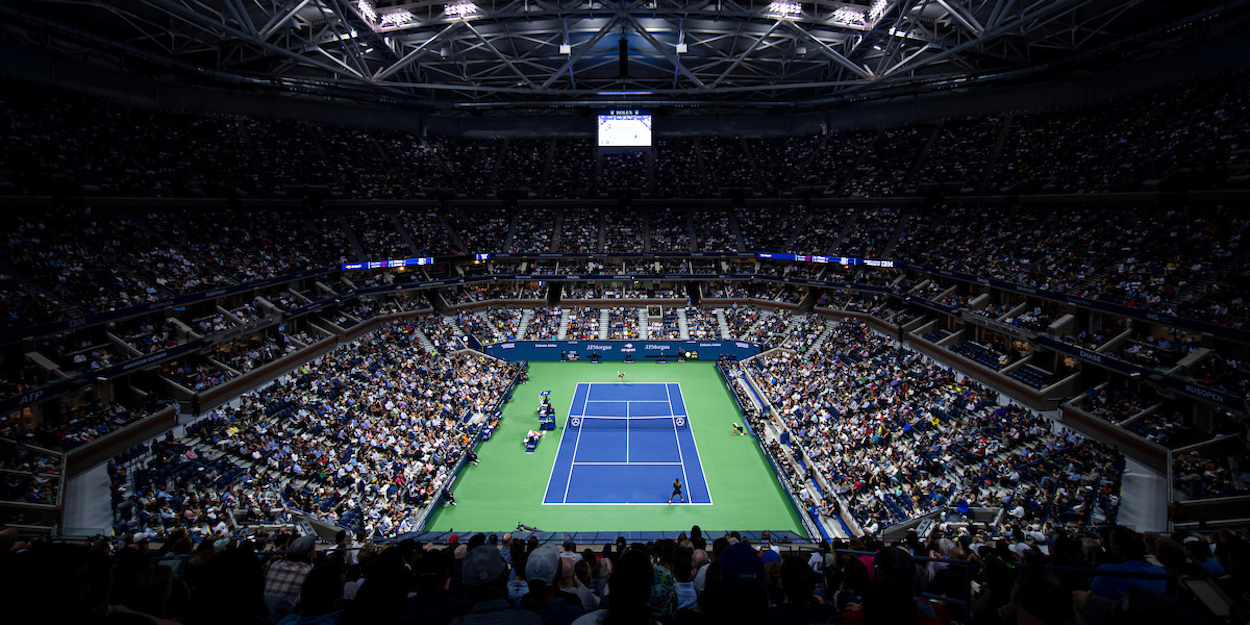
All eyes on Rio
Costing 7.4bn Brazilian Real (about £1.5 billion), can the Games inspire future generations of sporting champions, or will some of the venues stand empty, as they do in Athens 12 years on?
The Olympic tennis event in Rio takes place to the west of the city at Barra Olympic Park, where 15 competition venues, including the aquatics centre and velodrome, will stage 23 Olympic and 13 Paralympic disciplines. With a 10,000-seater Centre Court as well as a temporary 5,000-seat secondary arena, the Olympic Tennis Centre will be the largest purpose-built tennis venue in Brazil. After the Games the stadium court and seven other courts will form part of a training base for high-performance athletes.

This is an extract from “Olympic Ambitions” in tennishead Volume 7 Issue 2. For more great features, in-depth gear reviews and stunning images subscribe to tennishead today.
The Olympics could pave the way for more professional tennis events in Brazil. Before the Beijing 2008 Olympics, China hosted three regular season events on the WTA and ATP circuit. Eight years on, there are three ATP events and seven WTA tournaments held in the country.
“We took the legacy very seriously from the first discussions about this venue,” ITF Chief Operating Officer Juan Margets said when he visited the venue in 2014. “It was important that this facility could host major tour events if one day the circumstances arise. Along with Parque Roca in Buenos Aires, it will be the major tennis facility on the continent.”
Brazil’s best chance for a medal on the tennis court comes in the men’s doubles, where childhood friends Marcelo Melo and Bruno Soares will be among the favourites for gold.

“We’ve known each other since we were five or six years old,” explains Melo, who was best man at Soares’ wedding in 2008. “We played juniors together at the same club. We played our whole Davis Cup career together. To have a really close friend is better when you play with someone who is more than just a [doubles] partner.”
Having a global event on home soil gives the likes of Soares and Melo the opportunity to boost tennis’ popularity in Brazil, where soccer is tantamount to a religion. Beyond football, tennis battles with volleyball and Formula One for TV airtime, and is traditionally only played by the wealthy.
But in a country obsessed by football, one man singlehandedly put tennis into the Brazilian consciousness. Gustavo Kuerten was just 20 when he won the first of his three Roland Garros titles in 1997. With his languid style and infectious grin, Guga became a national treasure.
“When I was very young Guga was No.1 in the world and he was a big inspiration for me,” said Bellucci. “He was very charismatic and popular not just for people who followed tennis. He was very big in Brazil and he inspired a lot of people to play tennis.”
Brazilian tennis enjoyed a spike in popularity in the early 1990s thanks to Kuerten and Soares hopes success in the Olympics can create a similar buzz, and an even greater legacy. “There was a massive boom after Guga and I think at that time the people in charge of the sport weren’t able to capitalise and make the most of that moment,” says Soares.
“The Olympics is going to be great for us. We hosted the [FIFA] World Cup in 2014, which was great, but it’s only soccer. The Olympics is every sport. For tennis it’s going to be great if everything works out because we will have our training centre for the federation afterwards.”
Kuerten, who is a member of the Rio 2016 Sport Advisory Committee, echoed Soares’ views that the Rio Olympics represents an opportunity, not just for tennis, but for Brazilian sport.
“I think that Rio will be a great consecration for Brazilian sport,” he said. “It will be a great spectacle, a singular moment for Brazil. I hope that the Olympics can mean a kick-start for a new horizon, because sport needs to be better discussed, known and observed in Brazil. Sport builds champions in life.”
- Join the tennishead CLUB and receive £250/$350 of FREE GEAR including ASICS Gel-Resolution 8 trainers, shorts, shirt & socks
- Keep up to date with the breaking news & tennis action at our tennis news section
- Win amazing prizes by entering our competitions
- Learn more about your favourite players including Roger Federer, Rafa Nadal and Novak Djokovic
- Check out the latest tennis equipment with our tennis gear reviews
- Receive regular updates in our legendary free newsletter
- Read in depth features with stunning photography in tennishead magazine
- Can’t visit the tournaments you love? Check out our guide on how to watch tennis on TV
- Don’t miss a thing with our Live Scores service
- Follow tennishead on social media at Facebook, Twitter, Instagram & YouTube
- EXCLUSIVE 5% DISCOUNT for all tennishead readers on tennis rackets, balls, clothing, shoes & accessories with All Things Tennis, our dedicated tennis gear partner


